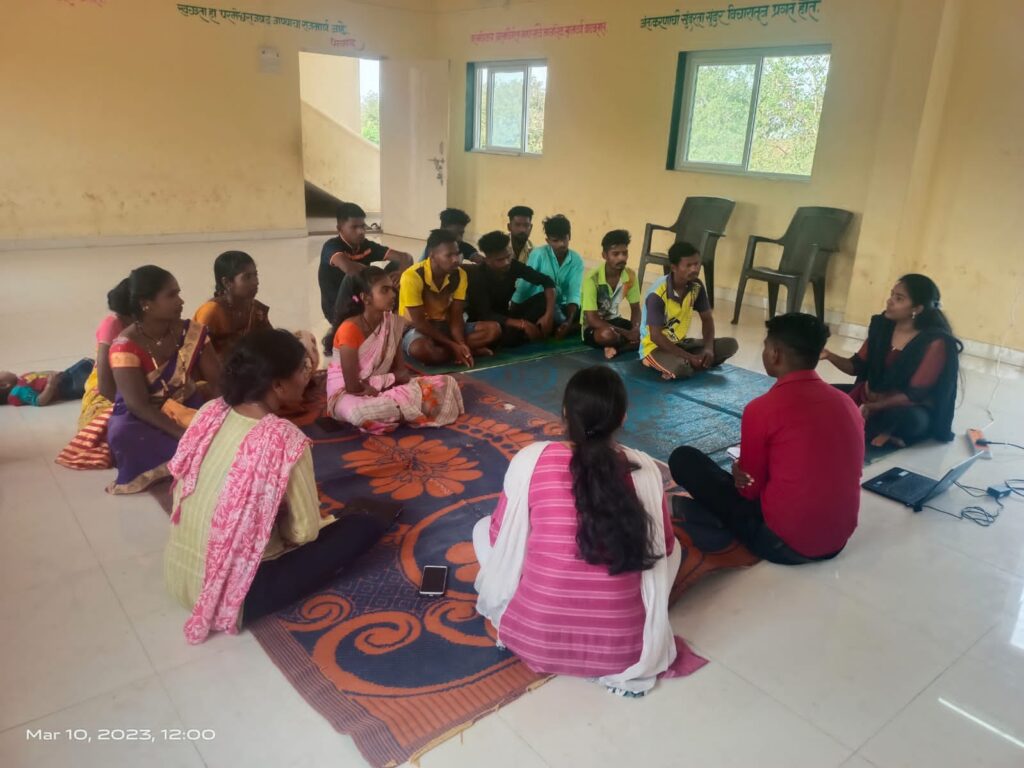A journey of lost letters and rejuvenated confidence
Even though the exchange of letters has fallen out as a necessary means of communication in today’s Internet age, people in remote areas still largely rely on the postal service for receiving important documents from the government ID cards and several other crucial documents necessary to qualify for government schemes are still sent by post. However, what if these priceless documents never reach us? What if they disappear along the route? Just the thought is enough to make one’s heart skip a beat. If there is a possibility of that happening to the well-educated or urban population, its unimaginable what the tribal population will go through, a person who work as daily wager and is largely affected by it! Losing an important identity document costs these tribals at multiple levels. They pay the transportation fares to visit the government office and miss out on their wage for that particular day; the chances of them receiving their documents in a single trip are woefully low, leading to the rightful fear of losing daily wages for each subsequent visit. The process of applying for a new document is a tedious task for tribals. Due to the lower literacy level among tribal areas, they often have to search for someone literate to fill out the forms for them. This is followed by assembling the required documents, which are unavailable due to the same negligence from the postal service. At last, they have to wait restlessly for months for their documents to arrive and there is a fear of never receiving them. Chari-Kotbi in Dahanu Taluka is a village which is far from the main road. However, it has a decent route that connects it to the main road. Along the interior of this route lies a tribal settlement. Since last year, AROEHAN has been working on health and local governance in this village through public participation. At each hamlet, AROEHAN has created committees, called Pada Samiti, consisting of selected locals in an effort to solve hamlet-level problems via the Gram sabha and bring in local governance. During a training session for the Pada Samiti members, villagers made a shocking revelation that they don’t receive their letters. The postman responsible for the same drops off all the letters at a villager named Kuna and asks him to distribute them throughout the village. Some of the testimonials spoke that despite applying for Aadhar Card months ago, they have not received them yet. Not only did some important documents did not reach them but some were deemed to have been lost on the way. This not only made them feel the regret about being assumed as uneducated, but also enraged that the fundamental right of having their letters delivered to their home was being denied.

Since this problem was prolific in not just one, but in multiple hamlets of the village, all the Pada Samitis took the unanimous decision to write a letter to the post-master informing him about the same. During the late evening hours when everyone returned from their daily wage work, Pada Samiti members held a formal meeting. Since the current postman was a resident of the village and could lose his job if a formal complaint was lodged, all the Pada Samiti representatives decided to solve the issue by talking with him. This sensible decision was accepted by all with no objections. The Pada Samiti members informed the postman of their troubles and suggested him to deliver the letters directly to each recipient’s home. In the meantime, the postman, who used to work on a contract basis, left his job due to personal reasons. The very next month, a new postwoman took up this post and now the letters are finally being delivered to the recipient’s doors.
As people believed that not receiving their letters was a personal problem, they did not take any initiative to fix it, being afraid that their voices wouldn’t be heard. However, seeing it at as a community problem – suffering the same strife, they concluded that the governmental systems won’t notice them unless they come together and speak against this injustice as one. Only then could they deal with this vexing trouble by themselves. Even though this issue and the consequent change brought; may seem minuscule to some, it helped ignite the confidence among the villagers of being able to overcome their own struggles in an organized manner by coming together as one.


